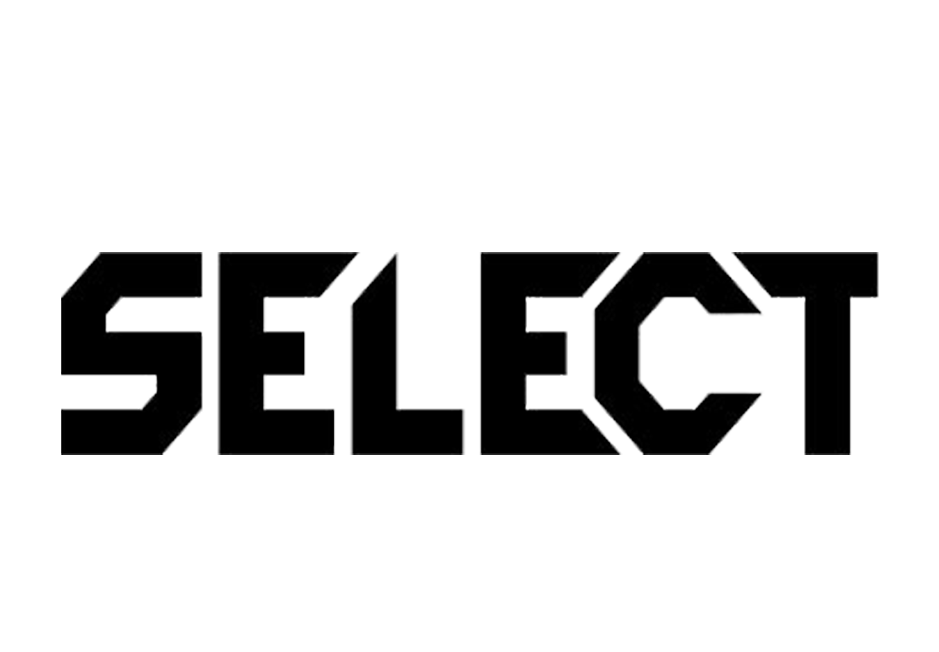- 865 Allian865 Alliance
- AAFCAAFC Lumberjills
- AcademicaAcademica Soccer Club
- AGCFAGC Football
- AHFCRAHFC Royals
- AHFCAHFC Royals Women
- AFCAlabama FC
- ARAlbany Rush
- ASDALBION San Diego
- AFCAlbuquerque FC
- ARAlexandria Reds
- ACSAlta California Sol
- ACAmbassadors Cleveland
- Arizona ArArizona Arsenal Soccer Club
- ASBArlington Soccer Blue
- ASRArlington Soccer Red
- ACSCAsheville City SC
- ASCAthena Soccer Club
- Atlanta FiAtlanta Fire United
- ACFCAtomic City FC
- AustinRiseAustin Rise FC
- BatCo FCBat Country FC
- BRUBaton Rouge United
- BUSCBavarian United SC
- BASBay Area Surf
- BCUBC United
- BFCBeach Futbol Club
- BeadlingSCBeadling Soccer Club
- BD FCBlack Diamond FC
- BRSCBluffton Rush SC
- BCUBoulder County United
- BSCBreakaway SC
- BrooklynBrooklyn City F.C.
- BBBroomfield Burn
- BRSCBRSC United
- CSCalifornia Storm
- CCCCape Coral Cyclones
- CFCCarolina FC
- CIUCentral Illinois United
- CUCentury United
- Red DevilsChallenge Red Devils
- CFCharleston Fleet FC
- CDACharlotte Development Academy
- CECharlotte Eagles
- CFCChattanooga FC
- CRWChattanooga Red Wolves SC
- CCSCChicago City SC
- CDLChicago Dutch Lions FC
- CH ACChicago House AC
- CK FCChicago KICS Football Club
- CRSRChicago Red Stars Reserves
- CRU23Chicago Rush U23
- CSFCCincinnati Sirens FC
- SSCCity SC
- CSC UtahCity SC Utah
- CSCClarkstown Soccer Club
- CE SAClassics Elite SA
- CKFCClermont Kicks FC
- CACleveland Ambassadors
- BlizzardColorado Blizzard FC
- CPColorado Pride
- CRWColorado Rapids Women
- CRColorado Rush
- CEFCColumbus Eagles FC
- CFC SACorinthians FC of San Antonio
- CorktownCorktown WFC
- CJCroatia Juniors
- CTRCT Rush
- CUFCCultures United Football Club
- DCFCDade County Football Club
- DFFCDakota Fusion FC
- DDLDayton Dutch Lions FC
- DECATURDECATUR FC
- DODelaware Ospreys
- DMMWDes Moines Menace Women
- DDFCDesert Dreams F.C.
- DVWDiablo Valley Wolves
- DEFFCDistrict Elite FC
- DKSCDKSC BADTOP
- DU SCDowntown United Soccer Club
- EFCEastside FC
- EDAIIEDA II
- EPSEl Paso Surf
- EDAElite Development Academy
- EFEmerald Force
- EREmpire Revs
- Erie FCErie FC
- ETFCAEugene Timbers FC Azul
- FCAFC Arizona
- FCBFC Berlin
- FCB WomenFC Birmingham
- FCDWFC Dallas Women
- FCDFC Davis
- FC DFC Dayton
- FCGSFC Golden State
- MTFC Milwaukee Torrent
- FCMFC Monmouth
- N WolvesFC Nashville Wolves
- FCOFC Omega
- FPWFC Premier
- FCPFC Pride
- FCPFC PrimeTime
- SpiritFC Spirit
- FCSFC Surge
- FCTWFC Tucson
- FCTFC Tucson
- FC UnitedFC United Cedar Rapids
- FCWFC Wichita
- FSCFever SC
- FIFire & Ice SC
- FSC98Fire SC 98
- FlatironsFlatirons Rush
- FESAFlorida Elite Soccer Academy
- FGCDLFCFlorida Gulf Coast Dutch Lions FC
- FKFlorida Krush
- FPF.C.Florida Premier F.C.
- FPFCFlorida Premier FC
- FRFlorida Roots
- FTSCFlorida Tropics SC
- FFCForce FC New York
- FWVFort Worth Vaqueras
- FSAFox Soccer Academy
- FAFram Ajax
- FFFCFresno Freeze FC
- FusionFusion FC
- FutboleraFutbolera Select
- GIGeorgia Impact
- GToledo FCGreater Toledo Futbol Club
- GBGGreen Bay Glory
- GEAGretna Elite Academy
- GriffinsGriffins FC
- GFCGriffins FC
- GCUGulf Coast United
- HFCHattiesburg FC
- HFCHershey FC
- HFCTHEX FC Tempest
- CobrasIllinois Lady Cobras
- ILCFCImperial Lake Charles FC
- ICIndependence Central
- INIndependence North
- ISIndependence South
- IDF.CIndios Denver FC
- ISFCIndy Saints FC
- IACInter AC (Calcio Unito Internazionale AC)
- ICAAInternacional Club Atletico
- ICAGInternacional Club Atletico CA/G
- ISCInternationals SC
- Iowa RaptoIowa Raptors FC
- IRIron Rose FC
- ISCGISC Gunners FC
- Jksn IgnJackson Ignite
- JacksonvilJacksonville Armada FC
- Joy AthletJoy AC
- JunctionJunction FC
- KCCIIKansas City Current II
- KCCKC Courage
- KFCKeystone FC
- KCUKingston Capitals
- LAKRLA Krewe Rush
- LR FCLa Roca FC
- LASLA Surf Soccer Club
- LVFCLA Villa FC
- LSFCLadies Steel FC (UPSL)
- LVFCLady Victory FC
- LamorindaLamorinda United
- LVLLas Vegas Legends
- LVQ11Las Vegas Q11
- LW76Legacy W76
- LFCLegends FC
- LRRLittle Rock Rangers
- LSCLonestar SC
- LIFLong Island Fury
- Lou FuszLou Fusz Athletic
- LVURLVU Rush
- Manitou FCManitou F.C.
- MUSCMankato United Soccer Club
- MFCSMarin Football Club Siren
- MFAFCMatch Fit Academy FC
- McLeanMcLean Soccer
- MLMemphis Lobos
- MVHFCMerrimack Valley Hawks FC
- MUFCMiami United FC
- MuskratsMidwest Select SA Muskrats
- MC AFCMilwaukee City AFC
- MDLFCMinnesota Dutch Lions FC
- MTAMinnesota Thunder
- MK FCMISS KICK FC
- MBCSMississippi Blues SC
- MO ReignMissouri Reign
- MNBFCMN Bliss FC
- MCFCMotor City FC
- MVLAWMVLA Wolves
- Napa ValleNapa Valley 1839 FC
- NRFCNashville Rhythm FC
- NCFCNCFC
- NRFANeuse River Futbol Alliance
- NFCNevada Futbol Club
- NJANew Jersey Alliance FC
- NYACNew York Athletic Club
- NYDLFCNew York Dutch Lions FC
- NYSNew York Shockers
- N1812Niagara 1812
- NJWSCCSNJ Wizards SC
- NASCNorth Alabama SC
- NCFNorth Carolina Fusion U-23
- NCRNorthern Colorado Rain FC
- NUUNorthern Utah United
- NSAU23NSA U23
- OCUOak City United
- ODFCUSAODFC Cesena
- OCFCOklahoma City FC
- OPSAMOPSA Magic
- OSAOSA XF
- PACPA Classics
- PACNWPacNW
- PPateadores
- PCMOBAPeachtree City MOBA
- PFPenn Fusion SA
- PFCAPensacola FC
- PFCAPensacola FC Academy
- PCPeoria City
- PLSPhiladelphia Lone Star FC
- PUNLPhiladelphia Ukrainian Nationals - Liberty
- PHXHFCPHX Heat FC
- PHSCPittsburgh Hotspurs FC
- PNSCPlayers North Soccer Club
- PSCPlayers SC
- PRPleasanton RAGE
- PC FCPort City FC
- PTFCIIPortland Thorns FC II
- PDMPrimero de Mayo
- PSAPSA Monmouth
- PSD APSD Academy
- PRPFCPuerto Rico Pride FC
- QC RushQuad Cities Rush
- RFCRADD FC
- RLFCRangers Ladies FC
- RUACReading United A.C.
- RCNJReal Central NJ
- RERebels Empire
- RSCRebels Soccer Club
- RIRFCRI Rogues FC
- RNYFCRochester New York FC
- RAZRoyals AZ
- URSARSL Southern Arizona
- SLSGSCSaint Louis Scott Gallagher SC
- SSCSalvo SC
- SA RunnersSan Antonio Runners
- SASSCSan Antonio Surf
- SDDSan Diego Dons
- SDPLSan Diego Parceiro
- SDSSan Diego SeaLions
- SDSSan Diego Strikers
- SDSSan Diego Surf
- SFESan Francisco Elite Soccer Club
- SFNSan Francisco Nighthawks
- SRFCSan Ramon FC
- SMSSCSanta Maria Synergy SC
- SSSCSavannah Spirit SC
- SCDSSC del Sol
- SCUBSC United Bantams
- SRFCSeattle Reign FC II
- Seminole ISeminole Ice
- SFGSFG Lady Demize
- SUShreveport United
- SFC92Side FC 92
- SC SolSioux City Sol
- Sioux FallSioux Falls City FC
- SJEBFCSJEB FC
- SCUFCSo Cal Union FC
- SoCalSoCal Dutch Lions FC
- SCRFCSoCal FC
- SCRFCSoCal Reds FC
- SHAFCSoccer House Academy FC
- SCFCSoda City FC
- SCASouthern California Eagles
- SSASouthern Soccer Academy
- SSFCSouthStar FC
- SFCBSouthStar FC Black
- SSCSSpokane SC Shadow
- SCTSporting CT
- SSWSporting South Walton
- SPSASportsParadize Soccer Academy
- SLLSt Louis Lions
- St. CroixSt. Croix Legacy
- STASTA
- SunflowerSunflower State FC
- SUSASUSA FC
- TBRTampa Bay Rowdies
- TBUTampa Bay United
- TBDTBD
- Boca BlastTeam Boca Blast
- TSTexas Spurs FC
- TTTexas Titans
- HAThe Houston Aces
- TTFCThe Town FC
- THUSCTHUSC Diamonds
- TLHRTLH Reckoning
- TempoTN Tempo FC
- TFCTorch FC
- TSSFCRTSS FC Rovers
- TTIBTTi Bluebonnets
- TSCTulsa Soccer Club
- UFAUFA Gunners
- UK FCUK F.C.
- U10FCUnion 10 FC
- UKCUnion KC
- USAUnited Soccer Alliance
- UAUtah Arrows SC
- Utah AvalaUtah Avalanche
- URUtah Royals
- URFCRUtah Royals FC Reserves
- USUtah Surf
- VSCCVale SC
- VIFCVancouver Island FC
- VTSSRVancouver TSS Rovers
- VVVancouver Victory FC
- VTFVermont Fusion
- VBCFCVirginia Beach City FC
- WFCWake FC
- WDLFCWashington Dutch Lions FC
- WSRWashington Spirit Reserves
- West FloriWest Florida Flames
- WMUWest-Mont United
- WUFCWestchester United F.C.
- WMFCWestside Metros FC
- WFCCWFC Charlotte
- WPSLWomen's Premier Soccer League 2
FEATURE: FOCUS ON MENTAL WELLNESS
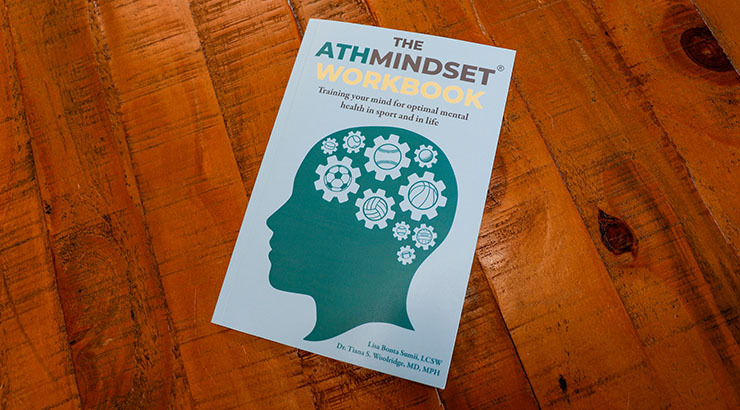
WPSL FOCUSES ON MENTAL HEALTH IN PARTNERSHIP WITH ATHMINDSET
Andrew Mosier | WPSL Communications
To further promote the mental health and mental performance of its more than 3,000 players, coaches, and staff, the WPSL and AthMindset have entered into a groundbreaking partnership for the 2025 season, building a culture where mental fitness and wellness are prioritized.
Throughout the season, WPSL athletes, coaches, and staff will take part in individual and team sessions, workshops, and receive education about mental health, wellness, and performance concepts led by the AthMindset registry of practitioners that include licensed mental health clinicians and certified mental performance consultants.
The program grew out of a series of webinars run by AthMindset Founder and CEO, Lisa Bonta Sumii, during the 2024 WPSL season. The webinars were the result of long conversations between Bonta Sumii and WPSL Commissioner, Kendra Halterman, at the SheBelieves Summit in Chicago last April.
“People sometimes forget that athletes are people first and foremost. Their mental health is just as important as their physical health,” Halterman said. “I don’t think there is anyone better suited to help us get this program off the ground than Lisa [Bonta Sumii].”
Along with her work at AthMindset, Bonta Sumii hosts the Athlete Mindset Podcast, which featured U.S. soccer royalty and WPSL alumna, Brandi Chastain last summer (listen here). Bonta Sumii is also an author, speaker, and pioneered the role of Mental Performance Coach for the Oakland Roots and Soul SC.
“I approach the athlete from a holistic perspective, making sure that their overall well-being is taken care of—their relationships, their communication with the people that matter to them the most, their inner thoughts and emotions, as well as their performance on the field,” Bonta Sumii said. “This approach is the same for the coaches and staff. It’s just that their role and performance environment may differ.”
Bonta Sumii grew up playing soccer in a family of soccer players; she understands the unique challenges that are part and parcel with the game. After an injury just before college cut her playing career short, Bonta Sumii experienced first-hand the toll a career-ending injury takes physically and emotionally on a player.
Bonta Sumii reflects on feeling lost during this period, as she struggled with limited access to rehabilitation opportunities—both physical and mental—that were necessary to restore her to collegiate-level playing ability, hindered by a lack of financial and mental health resources.
“I struggled and flailed a lot the first couple years of college, until I found my new identity, my new purpose,” Bonta Sumii said. “That is why this work is so important to me. I want to provide something I didn’t have and desperately needed.”
For Bonta Sumii, the stigma of asking for help remains one of the biggest hurdles in getting players the help they need and wants players to understand that everyone faces obstacles in their life, they're human, the response to those obstacles is crucial, equipping them to do so is key.
“We’ve seen it over and over again in high-level women’s soccer,” Bonta Sumii said. “High profile, over-achieving, high performing players don’t want to ask for help. They think if they do, they are weak. They want to make the people around them proud and look ‘strong.’ The staff and coaches are often cut from the same cloth, also managing the adversities of their lives.”
Additionally, along with performance on the field, athletes are trying to manage multiple stressors that could include academics, intimate relationships, teammate dynamics, coaching styles, jobs, and the needs of family members back home.
“A lot of folks who look very strong on the outside and perform at a high level are actually breaking on the inside,” Bonta Sumii said. “They pretend that they are okay. We need to equip coaches, staff, and teammates with the proper questions and the proper resources to help people live their lives, literally and figuratively.”
One of the topics Bonta Sumii stresses is the issue of athlete identity with female soccer players.
“You see, with a lot of female soccer players, their identity is based solely on how they perform. ‘If I’m playing well, then I’m a good person. If I’m not playing well, then I’m less than—and I don’t feel good about myself.”
Much of what Bonta Sumii hopes to accomplish revolves around teaching the women playing in the WPSL that they are more than just soccer players. And that it’s ok to discover and develop other aspects of who they are.
“We want to help them realize that they are more than just soccer players. We aim to show them that they can be many different things, and it’s okay not to define themselves solely by soccer. Embracing and expressing other aspects of their identity—like being a student, partner, family member, musician, community member, social activist, or a good friend—can actually make them better players.”
For example, a study in the Journal of Sports Psychology, 2023 on the Impact of Relaxation and Breathing Techniques, shows:
-
Reduction in anxiety: Players who practiced relaxation techniques reported a 22% reduction in pre-game anxiety.
-
Improvement in concentration: Players who practiced controlled breathing had a 20% improvement in concentration during high-stress moments in matches.
-
Penalty kick success rate: Female soccer players using relaxation techniques saw an 18% higher success rate in penalty kicks compared to a control group.
One of the greater challenges the WPSL poses in dealing with the mental health and well-being of its players is the continuum of life stages they are in, across the league. The same team can feature talented youth players still maneuvering the social rigors of high school and college, all the way to players who are partnered with children.
But mental health does not end with the players. Bonta Sumii said supporting teams’ technical and administrative staff is essential: “They need to be ‘well’ and supported so they can pour their focus into the players,” she said.
Related Links
 WPSL
WPSL 865 Alliance
865 Alliance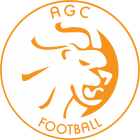 AGC Football
AGC Football AHFC Royals
AHFC Royals Albany Rush
Albany Rush ALBION San Diego
ALBION San Diego Alexandria Reds
Alexandria Reds Ambassadors Cleveland
Ambassadors Cleveland Arizona Arsenal Soccer Club
Arizona Arsenal Soccer Club Arlington Soccer Blue
Arlington Soccer Blue Arlington Soccer Red
Arlington Soccer Red Atlanta Fire United
Atlanta Fire United Austin Rise FC
Austin Rise FC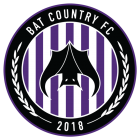 Bat Country FC
Bat Country FC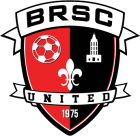 Baton Rouge United
Baton Rouge United Bavarian United SC
Bavarian United SC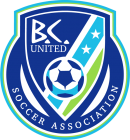 BC United
BC United Beach Futbol Club
Beach Futbol Club Beadling Soccer Club
Beadling Soccer Club Black Diamond FC
Black Diamond FC Brooklyn City F.C.
Brooklyn City F.C. Broomfield Burn
Broomfield Burn California Storm
California Storm Cape Coral Cyclones
Cape Coral Cyclones Carolina FC
Carolina FC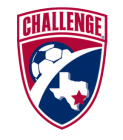 Challenge Red Devils
Challenge Red Devils Charlotte Eagles
Charlotte Eagles Chattanooga FC
Chattanooga FC Chicago House AC
Chicago House AC Chicago KICS Football Club
Chicago KICS Football Club City SC Utah
City SC Utah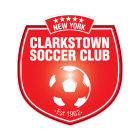 Clarkstown Soccer Club
Clarkstown Soccer Club Classics Elite SA
Classics Elite SA Cleveland Ambassadors
Cleveland Ambassadors Colorado Blizzard FC
Colorado Blizzard FC Colorado Pride
Colorado Pride Columbus Eagles FC
Columbus Eagles FC Corinthians FC of San Antonio
Corinthians FC of San Antonio Corktown WFC
Corktown WFC CT Rush
CT Rush Dade County Football Club
Dade County Football Club Dakota Fusion FC
Dakota Fusion FC Dayton Dutch Lions FC
Dayton Dutch Lions FC DECATUR FC
DECATUR FC Delaware Ospreys
Delaware Ospreys Desert Dreams F.C.
Desert Dreams F.C. District Elite FC
District Elite FC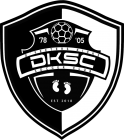 DKSC BADTOP
DKSC BADTOP Downtown United Soccer Club
Downtown United Soccer Club El Paso Surf
El Paso Surf Erie FC
Erie FC FC Birmingham
FC Birmingham  FC Dallas Women
FC Dallas Women FC Davis
FC Davis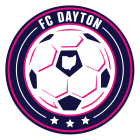 FC Dayton
FC Dayton FC Milwaukee Torrent
FC Milwaukee Torrent FC Monmouth
FC Monmouth FC Nashville Wolves
FC Nashville Wolves FC Premier
FC Premier  FC Pride
FC Pride FC PrimeTime
FC PrimeTime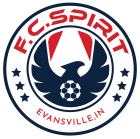 FC Spirit
FC Spirit FC Surge
FC Surge FC Tucson
FC Tucson FC Wichita
FC Wichita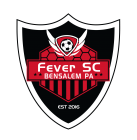 Fever SC
Fever SC Florida Gulf Coast Dutch Lions FC
Florida Gulf Coast Dutch Lions FC Florida Krush
Florida Krush Florida Premier FC
Florida Premier FC Florida Roots
Florida Roots Force FC New York
Force FC New York Fort Worth Vaqueras
Fort Worth Vaqueras Fresno Freeze FC
Fresno Freeze FC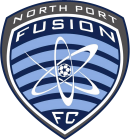 Fusion FC
Fusion FC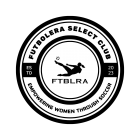 Futbolera Select
Futbolera Select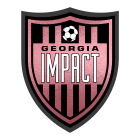 Georgia Impact
Georgia Impact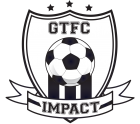 Greater Toledo Futbol Club
Greater Toledo Futbol Club Green Bay Glory
Green Bay Glory Griffins FC
Griffins FC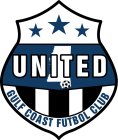 Gulf Coast United
Gulf Coast United Hattiesburg FC
Hattiesburg FC Hershey FC
Hershey FC HEX FC Tempest
HEX FC Tempest Indios Denver FC
Indios Denver FC Internationals SC
Internationals SC Iowa Raptors FC
Iowa Raptors FC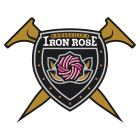 Iron Rose FC
Iron Rose FC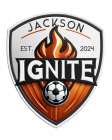 Jackson Ignite
Jackson Ignite Jacksonville Armada FC
Jacksonville Armada FC Joy AC
Joy AC Junction FC
Junction FC Kansas City Current II
Kansas City Current II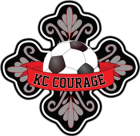 KC Courage
KC Courage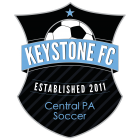 Keystone FC
Keystone FC  Kingston Capitals
Kingston Capitals LA Krewe Rush
LA Krewe Rush La Roca FC
La Roca FC LA Surf Soccer Club
LA Surf Soccer Club Lamorinda United
Lamorinda United Lonestar SC
Lonestar SC Lou Fusz Athletic
Lou Fusz Athletic LVU Rush
LVU Rush Manitou F.C.
Manitou F.C.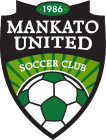 Mankato United Soccer Club
Mankato United Soccer Club McLean Soccer
McLean Soccer Merrimack Valley Hawks FC
Merrimack Valley Hawks FC Midwest Select SA Muskrats
Midwest Select SA Muskrats Milwaukee City AFC
Milwaukee City AFC Minnesota Dutch Lions FC
Minnesota Dutch Lions FC Minnesota Thunder
Minnesota Thunder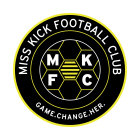 MISS KICK FC
MISS KICK FC Mississippi Blues SC
Mississippi Blues SC Missouri Reign
Missouri Reign MN Bliss FC
MN Bliss FC Napa Valley 1839 FC
Napa Valley 1839 FC Nashville Rhythm FC
Nashville Rhythm FC NCFC
NCFC Neuse River Futbol Alliance
Neuse River Futbol Alliance Nevada Futbol Club
Nevada Futbol Club New York Athletic Club
New York Athletic Club New York Dutch Lions FC
New York Dutch Lions FC New York Shockers
New York Shockers Niagara 1812
Niagara 1812 NJ Wizards SC
NJ Wizards SC  Northern Colorado Rain FC
Northern Colorado Rain FC Northern Utah United
Northern Utah United Oklahoma City FC
Oklahoma City FC PA Classics
PA Classics Penn Fusion SA
Penn Fusion SA Pensacola FC
Pensacola FC Pensacola FC Academy
Pensacola FC Academy Peoria City
Peoria City Philadelphia Ukrainian Nationals - Liberty
Philadelphia Ukrainian Nationals - Liberty PHX Heat FC
PHX Heat FC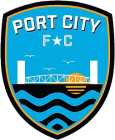 Port City FC
Port City FC Portland Thorns FC II
Portland Thorns FC II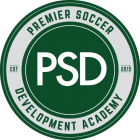 PSD Academy
PSD Academy Quad Cities Rush
Quad Cities Rush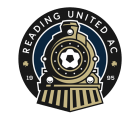 Reading United A.C.
Reading United A.C. Real Central NJ
Real Central NJ Rebels Soccer Club
Rebels Soccer Club RI Rogues FC
RI Rogues FC Rochester New York FC
Rochester New York FC Royals AZ
Royals AZ RSL Southern Arizona
RSL Southern Arizona  Saint Louis Scott Gallagher SC
Saint Louis Scott Gallagher SC Salvo SC
Salvo SC San Antonio Runners
San Antonio Runners San Diego Dons
San Diego Dons San Diego Parceiro
San Diego Parceiro  San Diego Strikers
San Diego Strikers San Diego Surf
San Diego Surf San Francisco Elite Soccer Club
San Francisco Elite Soccer Club San Francisco Nighthawks
San Francisco Nighthawks San Ramon FC
San Ramon FC SC del Sol
SC del Sol Seattle Reign FC II
Seattle Reign FC II Seminole Ice
Seminole Ice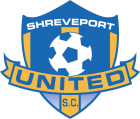 Shreveport United
Shreveport United Side FC 92
Side FC 92 Sioux Falls City FC
Sioux Falls City FC SJEB FC
SJEB FC So Cal Union FC
So Cal Union FC SoCal Dutch Lions FC
SoCal Dutch Lions FC Soda City FC
Soda City FC Southern California Eagles
Southern California Eagles SouthStar FC
SouthStar FC Spokane SC Shadow
Spokane SC Shadow Sporting CT
Sporting CT St. Croix Legacy
St. Croix Legacy STA
STA  Sunflower State FC
Sunflower State FC SUSA FC
SUSA FC The Town FC
The Town FC TLH Reckoning
TLH Reckoning TN Tempo FC
TN Tempo FC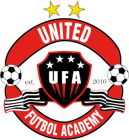 UFA Gunners
UFA Gunners UK F.C.
UK F.C. Union 10 FC
Union 10 FC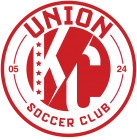 Union KC
Union KC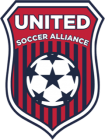 United Soccer Alliance
United Soccer Alliance Utah Avalanche
Utah Avalanche Utah Surf
Utah Surf  Vale SC
Vale SC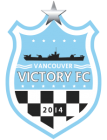 Vancouver Victory FC
Vancouver Victory FC Washington Dutch Lions FC
Washington Dutch Lions FC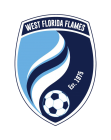 West Florida Flames
West Florida Flames West-Mont United
West-Mont United Westside Metros FC
Westside Metros FC WFC Charlotte
WFC Charlotte Women's Premier Soccer League 2
Women's Premier Soccer League 2

